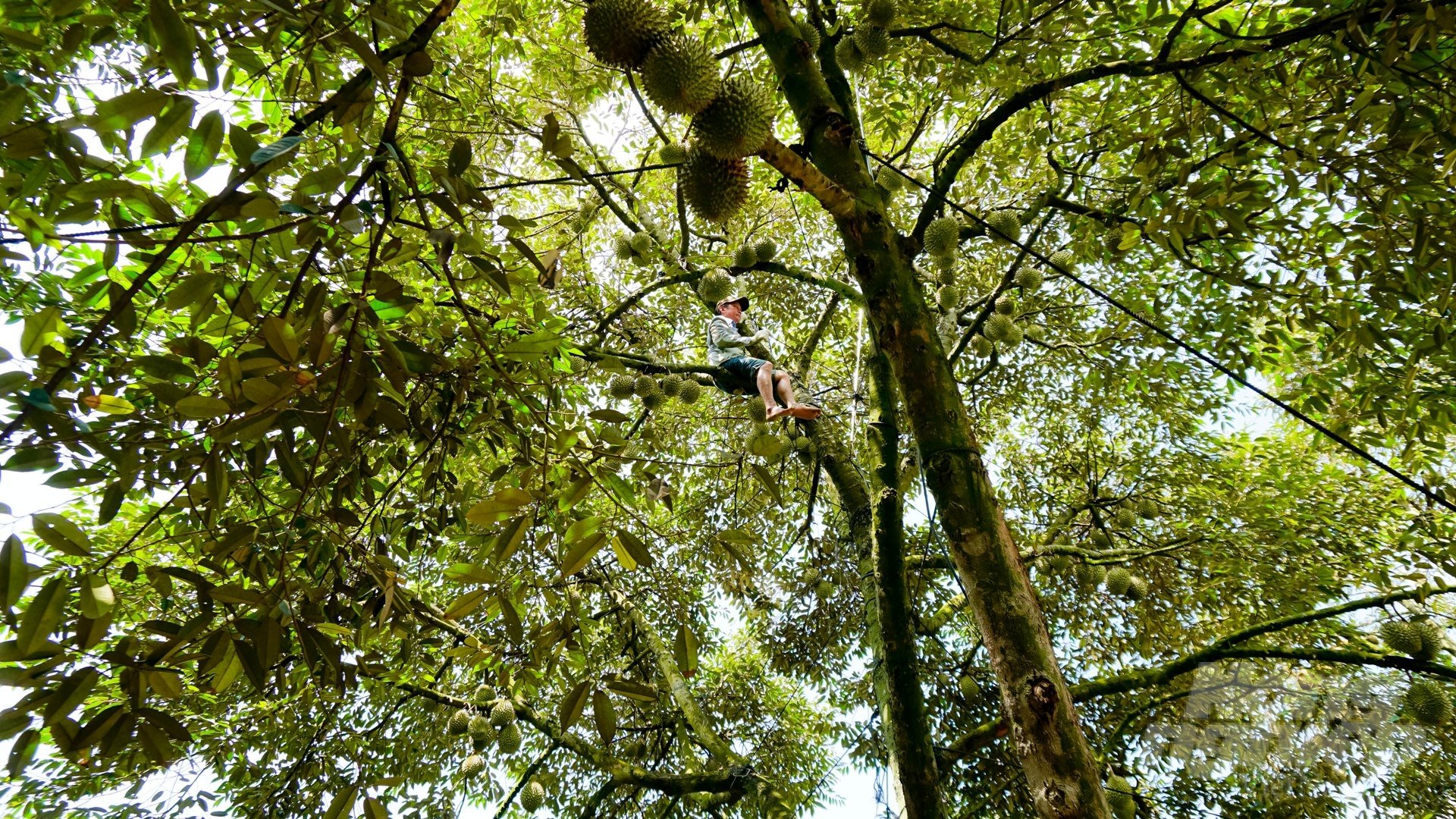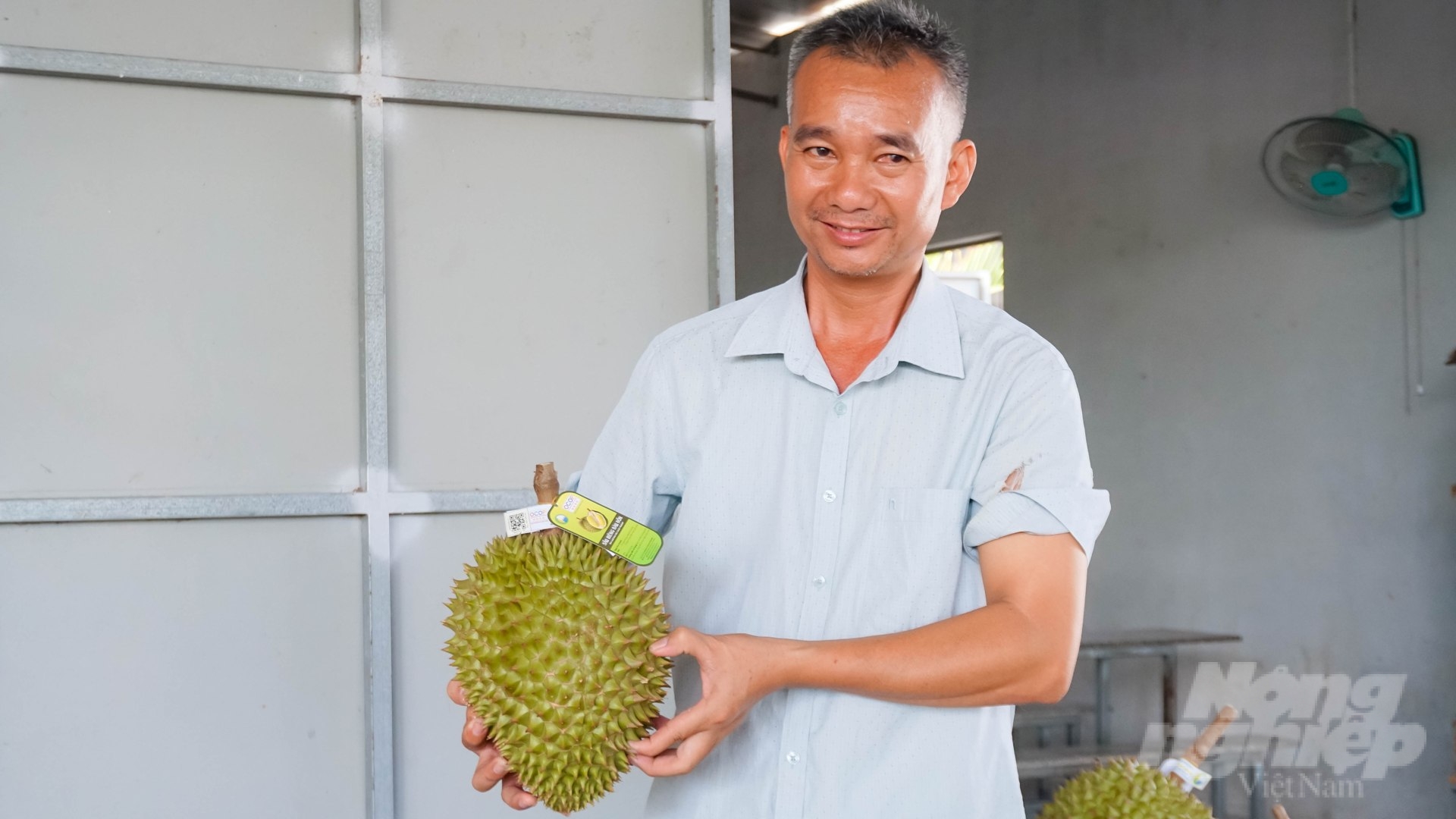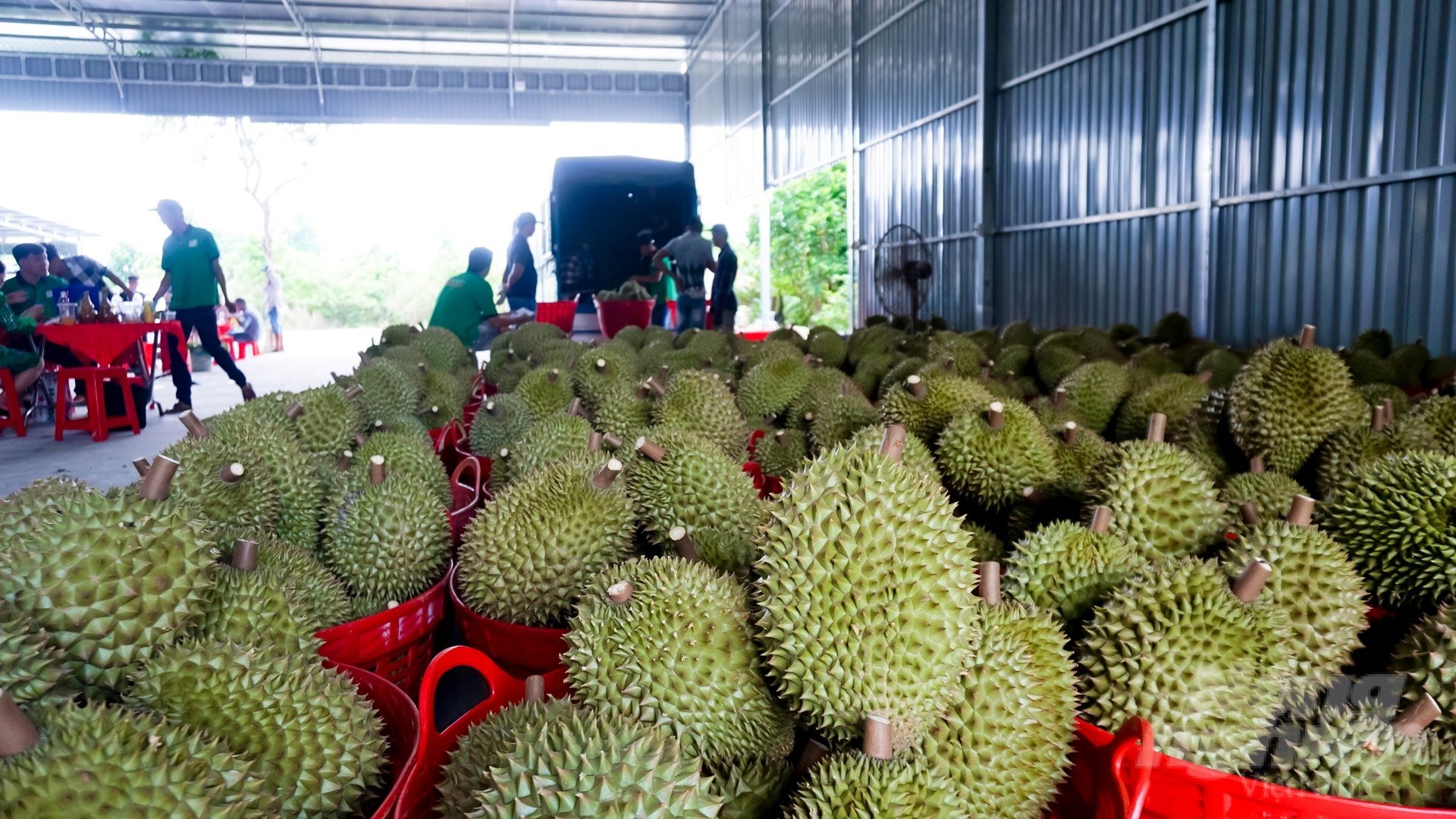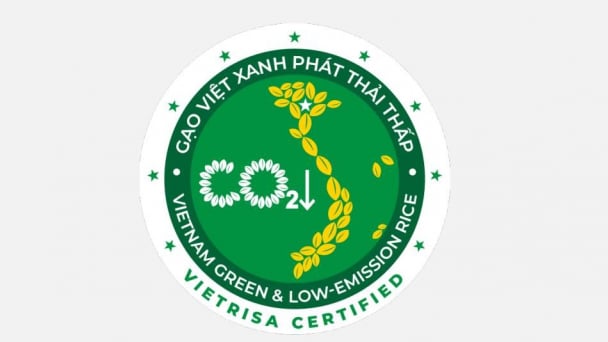May 15, 2025 | 15:17 GMT +7
May 15, 2025 | 15:17 GMT +7
Hotline: 0913.378.918
May 15, 2025 | 15:17 GMT +7
Hotline: 0913.378.918
Despite the sweltering temperatures along the Southwest border, farmers in Bau Don, Go Dau district, known as the durian "hub" of Tay Ninh province, were filled with joy and happiness. According to farmers, it is possible to earn billions of Vietnamese dong with just 100 durian roots. The recent success in crop yields can be attributed to a breakthrough in the irrigation system.

Thanks to the abundant water source from the irrigation system, durian in Bau Don commune is favorable for development, grows well and gradually becomes the main crop of the locality. Photo: Le Binh.
According to Tran Quoc Hiep, a communal authority of Bau Don commune, the region was once a remote area that has now been transformed into a new economic zone called Ben San. In the face of substandard infrastructure, local farmers were confined to cultivating just one crop per year and primarily focused on rice and other crops due to a lack of sufficient water resources. They were besieged by poverty and hunger.
With the recent investment in irrigation and drainage systems by the state, there has been a notable transformation in the production of plants and livestock. The improved water supply has paved the way for a greener and more prosperous agricultural industry. Humid regions are being utilized for the cultivation of three crops annually, while hilly areas are being utilized for fruit farming, with durian being the primary crop of focus.

Bau Don commune, Go Dau district is considered the "capital" of durian in Tay Ninh province with more than 1,000 hectares of this fruit. Photo: Tran Trung.
"Regarding durian only, the whole Bau Don commune has around 1,000 ha, and Hamlet 6 has over 200 ha. Approximately half of the area is reserved for cultivating durian trees that are 10 years or older. Each hectare yields between 20-30 tons of durian annually. The current price of durian has exceeded VND 50,000 per kilogram, resulting in significant profits for farming households. Some households have even earned billions of dong," Hiep said.
According to Nguyen Van Dung, the Vice Chairman of the Bau Don Communal People's Committee, the area is equipped with multiple irrigation canals that are part of the Dau Tieng - Phuong Hoa irrigation system, which is crucial in supporting local agricultural production. Over several years, the local authorities have been encouraging residents to shift their focus from low-efficiency crops to more lucrative options.
The local community has shown a strong agreement towards the orientation of shifting from rice cultivation to growing fruits such as mangosteen, green-skin pomelo, Thai jackfruit, and durian. This transition has resulted in significant economic benefits for the region.
Bau Don commune, located in Vietnam, has transformed in recent years. While it once had approximately 3,000 ha of rice production land, the area has now become a specialized fruit-growing region spanning over 1,300 ha. Over 1,000 ha of land have been taken up by durian trees, with more than 800 ha of these trees having been harvested.
According to the Vice Chairman of the Bau Don Commune People's Committee, the majority of durian gardens are yielding high-quality fruit due to proper care and efficient techniques. This has resulted in a reliable source of income for the local population.

The director of Bau Don Fruit Cooperative said that this year durian in Bau Don commune was good, the price was good, and the profit was nearly double compared to every year. Photo: Le Binh.
Bau Don commune took a significant step towards enhancing the quality of durian products, establishing brand recognition, and promoting sustainable consumption by creating fruit production cooperatives in 2018. The aim was to gradually unite and connect durian growers in the area.
The establishment of the Bau Don Fruit Cooperative was advocated by the locality as a means to create a chain of investment linkages, provide technical guidance on durian cultivation and consumption, build brands, and find sustainable markets for Bau Don durian products. This initiative was born out of the gradual stabilization of cooperative groups.
According to Phan Hoai Thinh, the Director of Bau Don Fruit Cooperative, the cooperative currently consists of 32 members who cultivate over 40 ha of land. Starting this year, the unit has implemented a system to record the planting area and attach a QR code with the durian trademark. The cooperative's fruit products in Bau Don, particularly their durian fruit, have gained widespread promotion, resulting in increased consumer awareness.
The cooperative has implemented a labeling system complete with a QR code that allows consumers to easily identify their durian fruit as a product distributed by the cooperative. Additionally, the label provides information that the fruit originates from Bau Don. According to Thinh, the cooperative's durian fruit is now widely available in stores and supermarkets across the country, with a particular focus on Hanoi.
Tay Ninh used to be a hot spot for activities during durian season, with tourists flocking to the area to taste the fruit straight from the gardens.
Bau Don farmers are reaping significant benefits by partnering with the Bau Don Fruit Cooperative. Adhering to VietGAP standards, they have achieved a 4-star OCOP rating. The increased attention on Bau Don as a durian hub is a direct result of this development.
Trang Thi Tho (43 years old) was thrilled as she split open a Ri6 durian with her own hands and savored its sweet, fragrant flavor. Her family had driven over 30 km from Hoa Thanh town to Bau Don commune to visit the garden where the durian was grown.

The first batch of durians from Bau Don Fruit Cooperative was purchased by traders and prepared to be exported to China. Photo: Le Binh.
According to Tho, a Tay Ninh native, this was their first experience of personally plucking and separating pieces from the pods. Many people experience a sense of joy when consuming citrus fruits, but for one individual, the experience is heightened when the fruit is plucked directly from the garden rather than purchased from a market.
The gardens of Cha La, Truong Mit, Truong Dong, and Truong Hoa in Hoa Thanh Town have become popular tourist destinations due to their abundance of durian, mangosteen, mulberry, and rambutan. Bau Don, known as the "capital" of durian, is also a notable location for fruit enthusiasts in the Duong Minh Chau district. Many gardeners also design and build beautiful miniatures and provide many attractive experience services to attract visitors.
Translated by Linh Linh

(VAN) Veterinary training should focus on quality, not just quantity. Veterinarians also need more options to pursue specialized training.

(VAN) The veterinary industry needs to be viewed objectively and further invested in to properly demonstrate its role and importance in the new context.

(VAN) The number of veterinarians graduating each year is not enough to meet actual needs, hence a difficult problem for the growing livestock industry.

(VAN) The strategic partnership between Cambodia, the Philippines, Vietnam, and CGIAR ensures that innovative solutions effectively address national priorities for food system development.

(VAN) This was affirmed by the UK Minister of State at the Department for Environment, Food and Rural Affairs during a working session with Deputy Minister Tran Thanh Nam on May 13.

(VAN) On May 13, the Ministry of Agriculture and Environment, in coordination with the Embassy of Vietnam in the United Kingdom, organized a seminar titled 'Connecting trade in Vietnam-UK agricultural, forestry, and fishery products'.

(VAN) The launch of the Vietnam green and low-emission rice brand is a positive signal for both businesses and farmers, marking readiness to reach new heights in the global market.